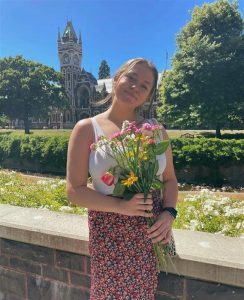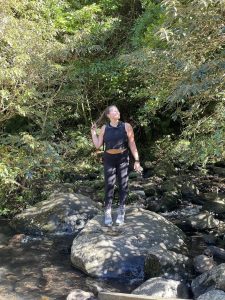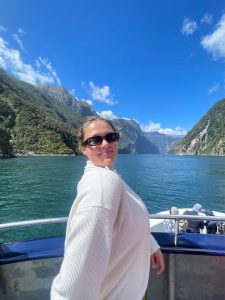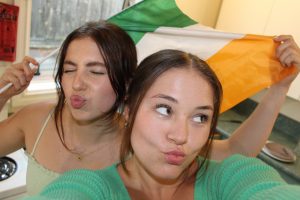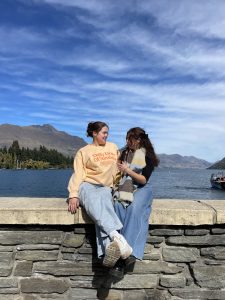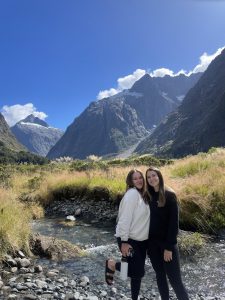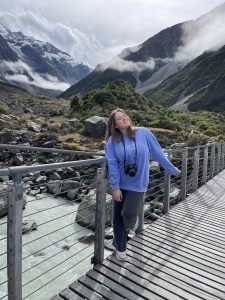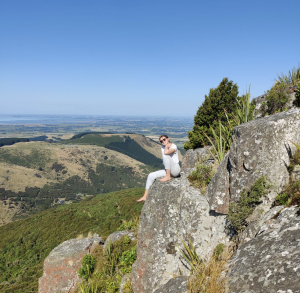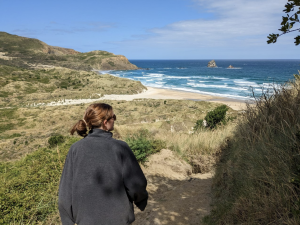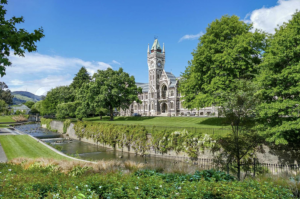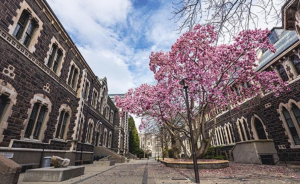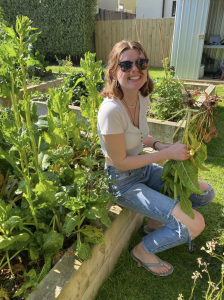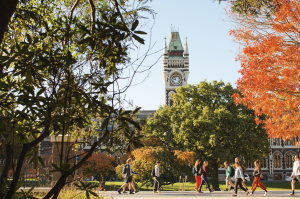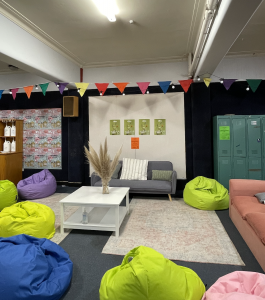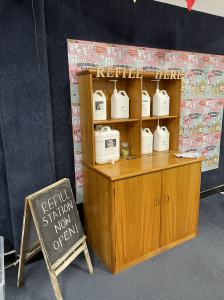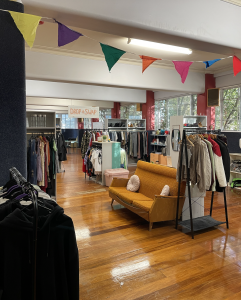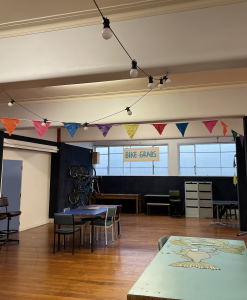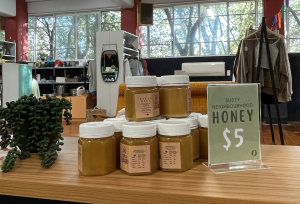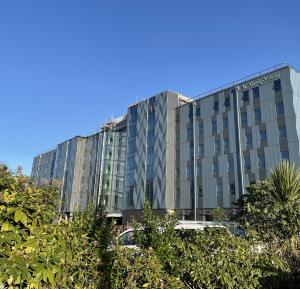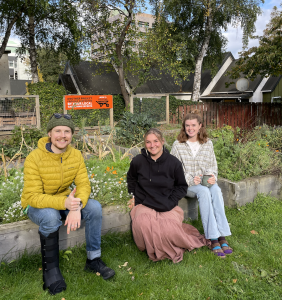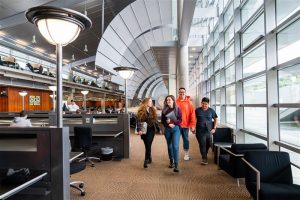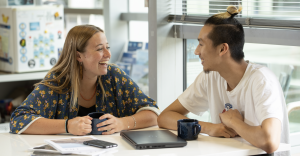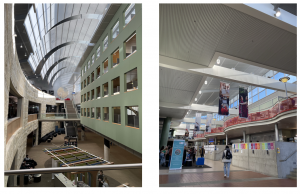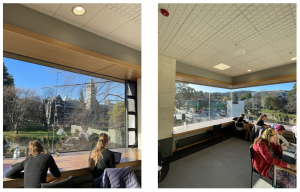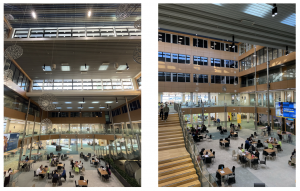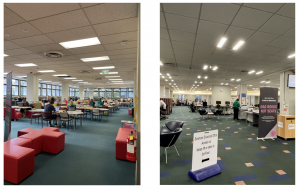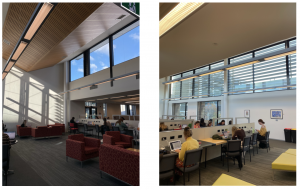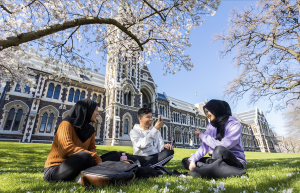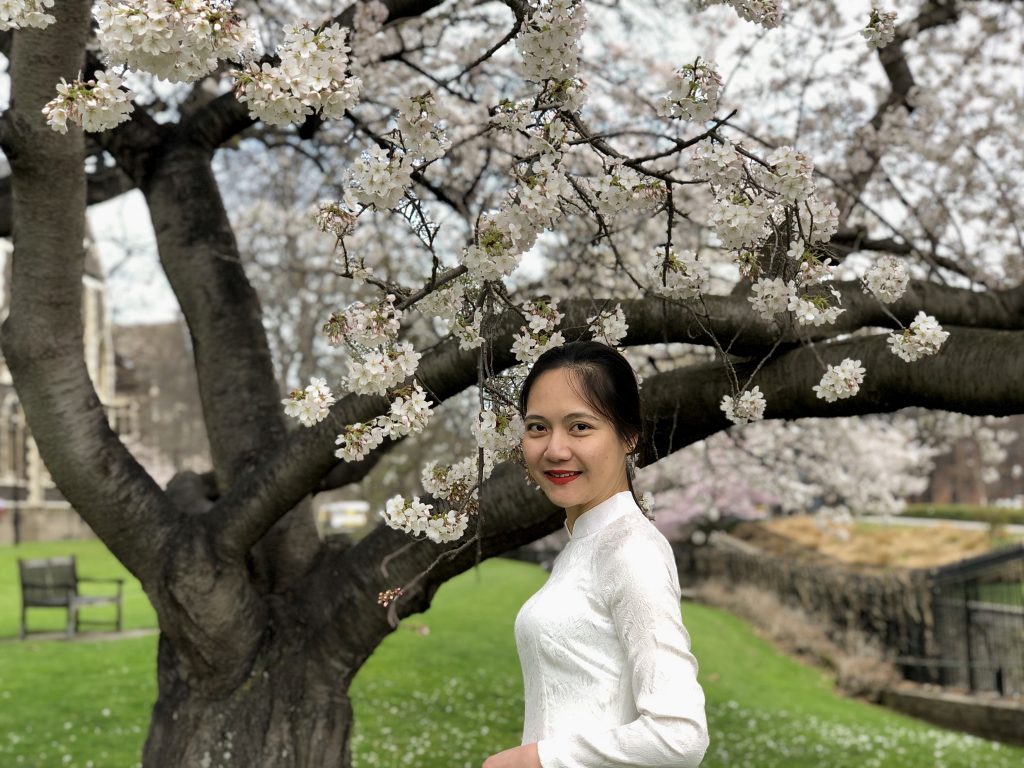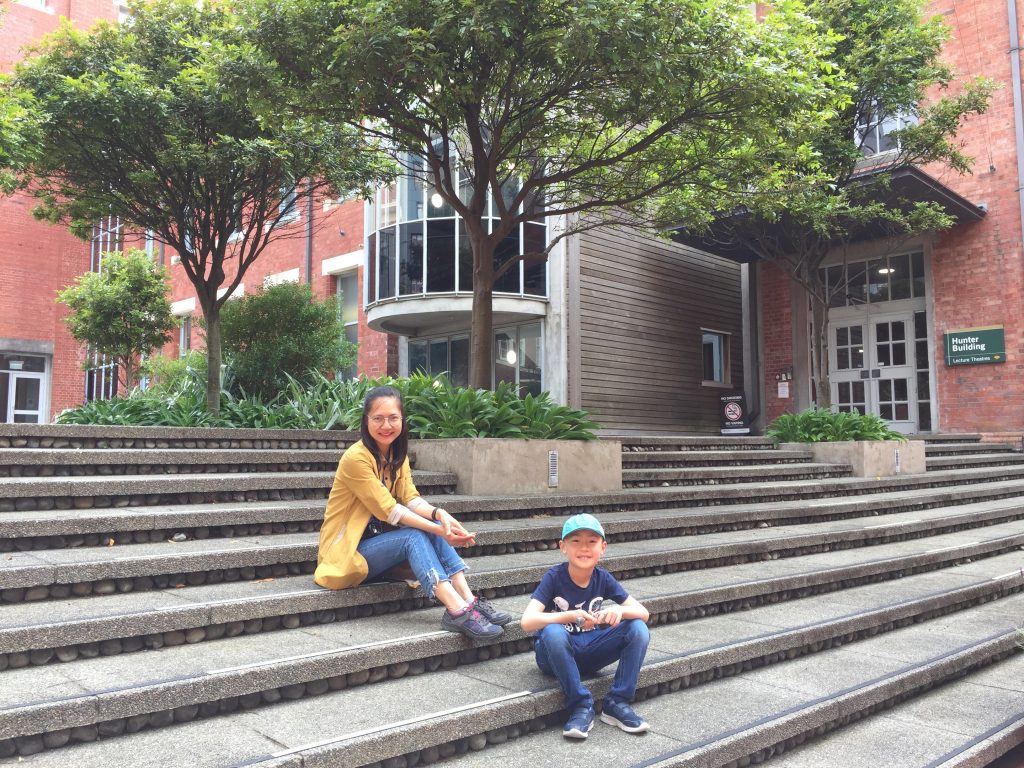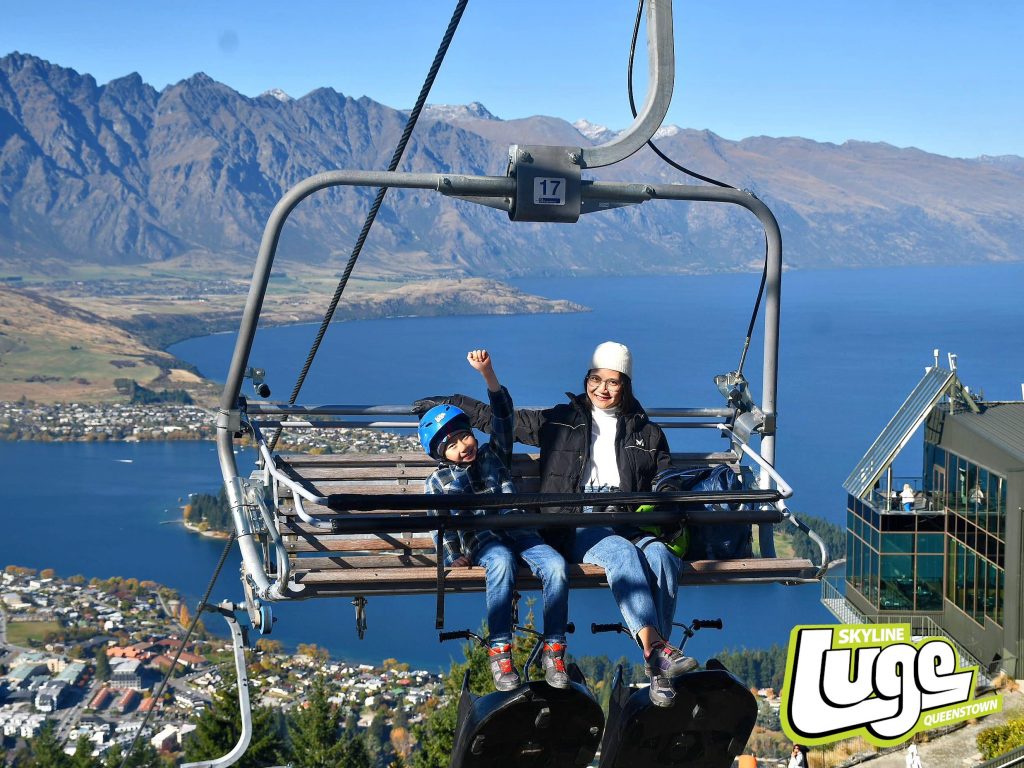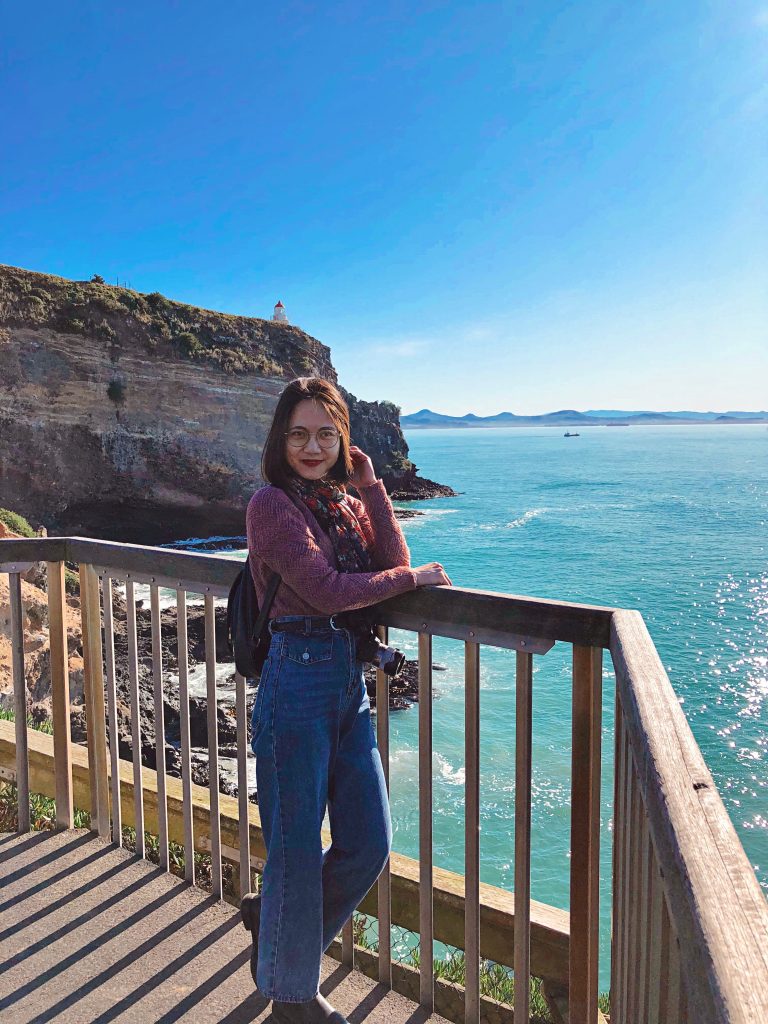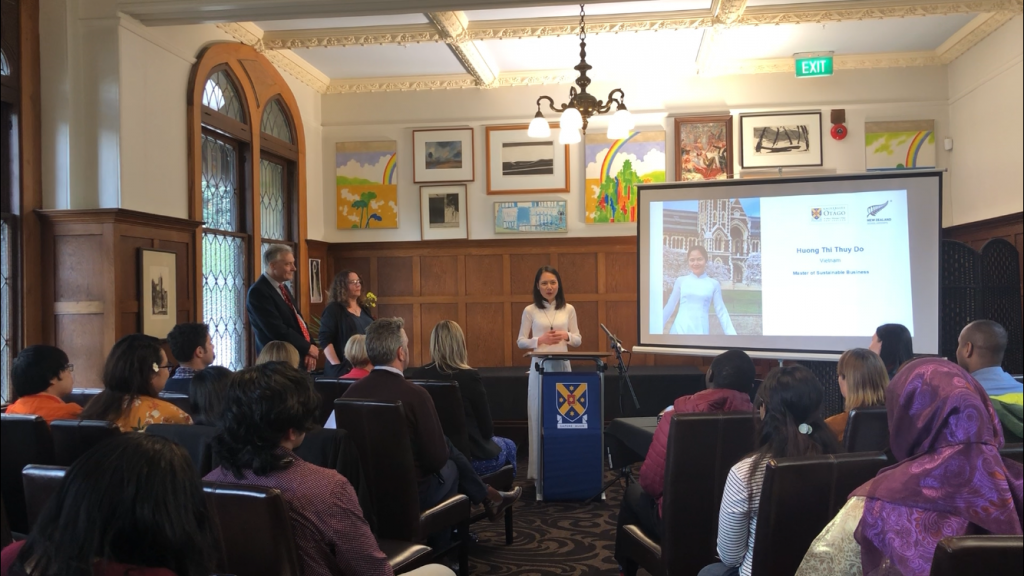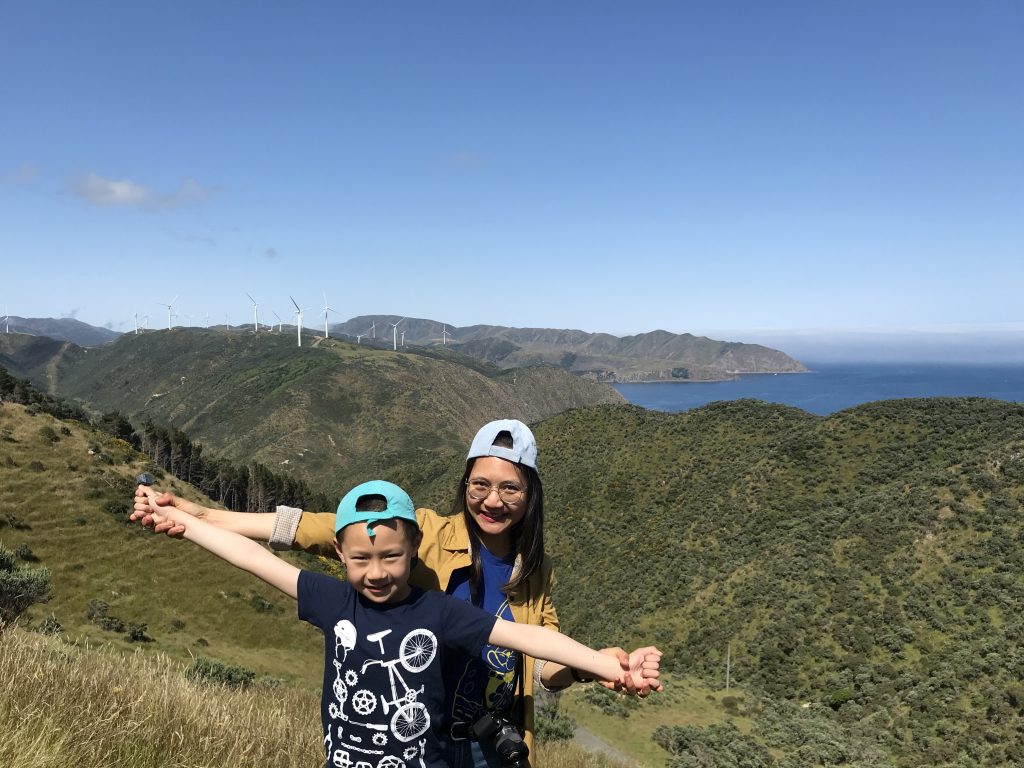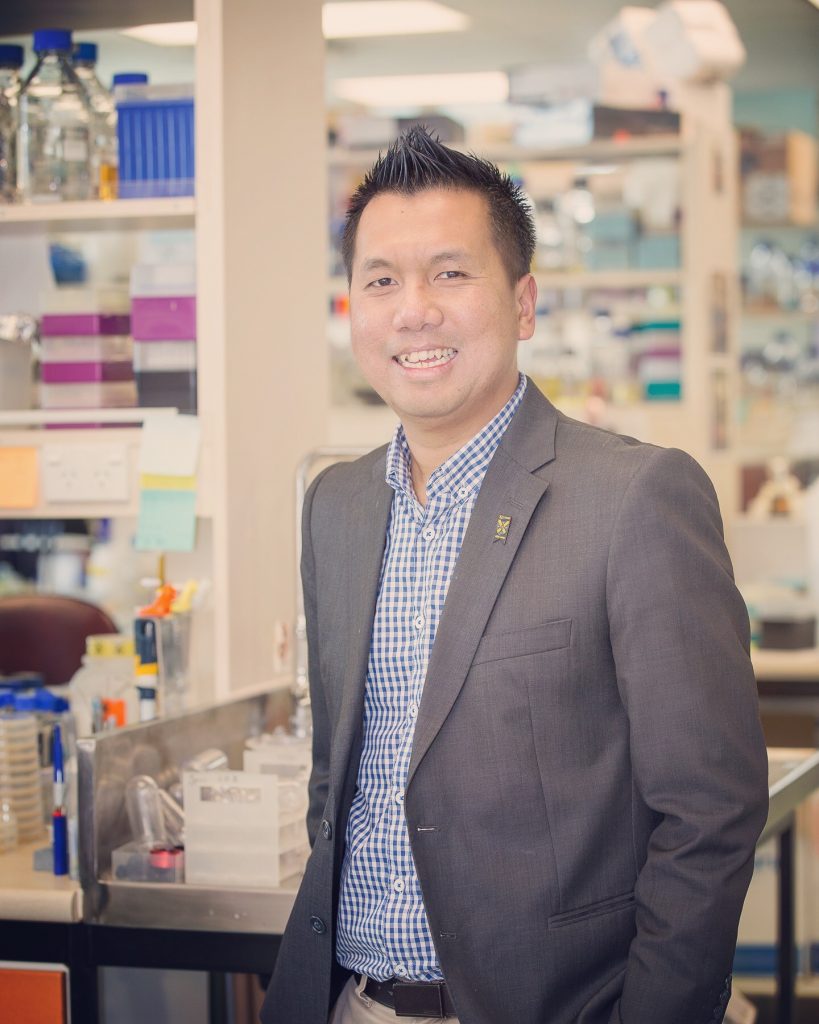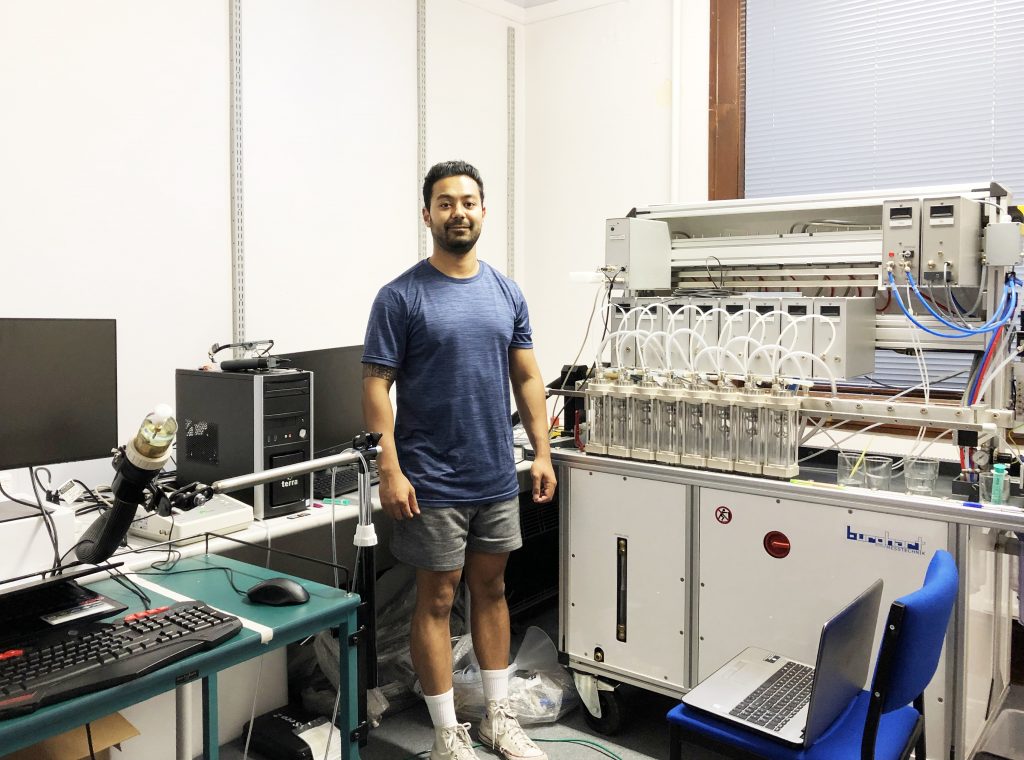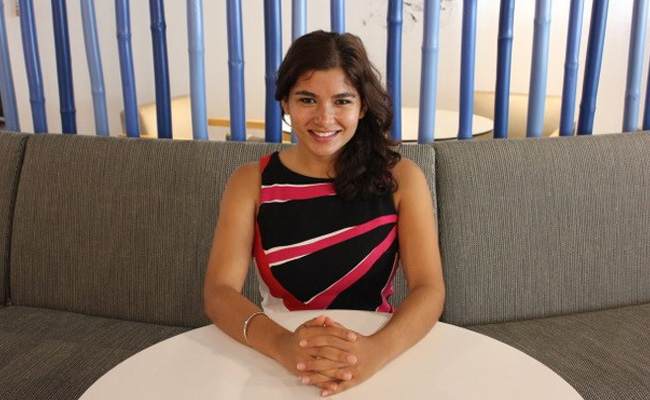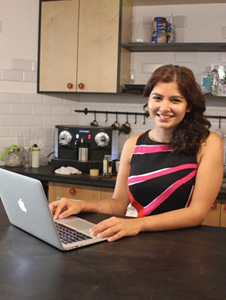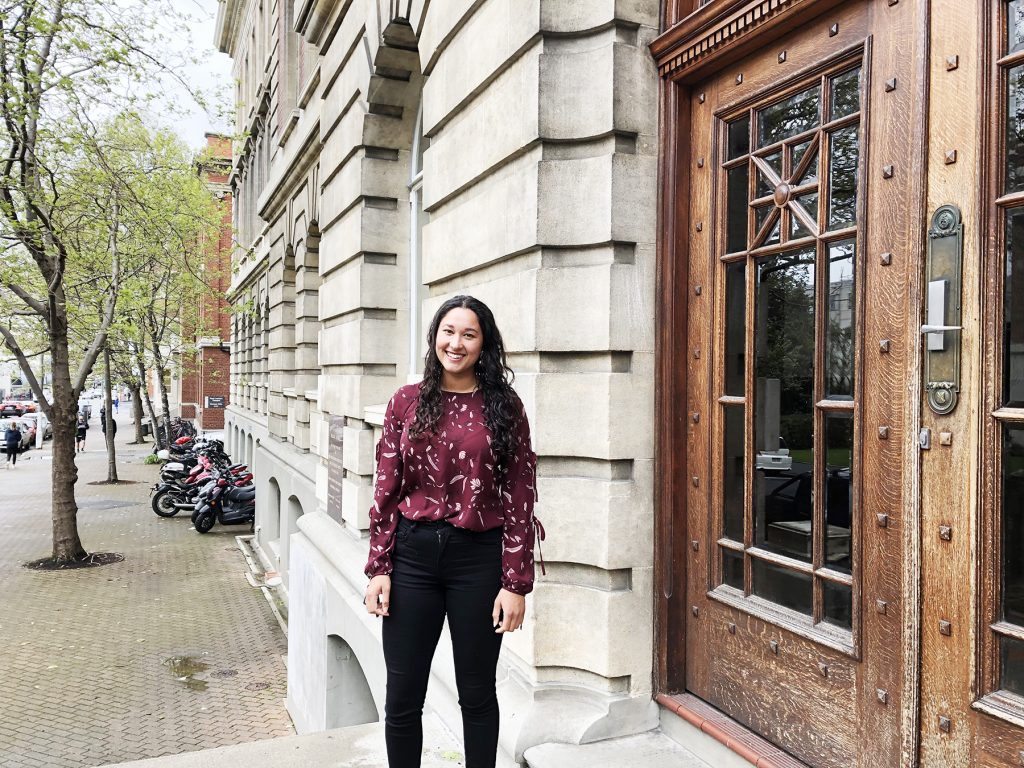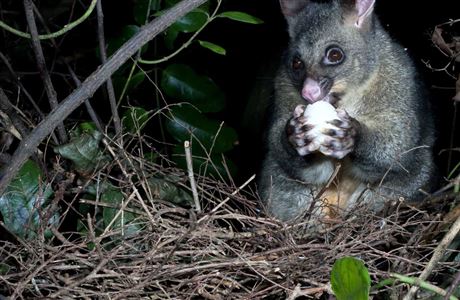Transitioning from Study Abroad to Full Degree: Neve Oettinger’s ‘Miracle’ Discovery at the University of Otago
Before her arrival at the University of Otago, Study Abroad student Neve Oettinger never imagined she wouldn’t be returning to her home in Minnesota, USA, at the end of her semester in New Zealand. In fact, Neve hadn’t initially planned on attending Otago at all, having already applied and paid application fees for another New Zealand university. Yet, in what she describes as a ‘miracle,’ Neve discovered Otago for the first time when by chance, she decided to look at other options, having only seen her prior choice when previously searching her major.
“One day I randomly looked at my university’s study abroad page and typed in New Zealand, then Otago came up and I looked at the pictures of the surrounding area, did more research, and found they offered my papers. So I cancelled my other application and applied to Otago! It’s like a miracle now because it’s perfect.”
Today, as semester one comes to a close, Neve sits before us as a full degree University of Otago student and will remain here next year to graduate. So we sat down with Neve to reflect on her self-labelled ‘bold choices’ and to hear how her Otago experience has been beautifully shaped by community, friendship, support, nature and connection.
Neve, it is wonderful to have you here! What are you currently studying?
“Sociology and I’m majoring in Criminology.”
What inspired you to choose New Zealand as your country of study?
“A lot of people from the United States go to Europe, and I knew I wanted a unique experience, somewhere with a lot of nature. New Zealand has a lot of nature and is a lot smaller than the United States which is exactly what I wanted.”
Have you felt a sense of community since you’ve been here? Have you fit in easily?
“Yes, it’s actually crazy. First of all [Otago] is a lot smaller than my home university which I really like because at home I always felt lost in the crowd, I didn’t know my professors’ names and they didn’t know mine- we had like 800 people in a lecture. So it’s nice here, it almost feels like the size of high-school classes which is nice because I actually have relationships with my lecturers and other students!
I always see familiar faces, I might not know their name, but I see the same people around, which is so different, because you would never see the same person twice where I am from.
Before I came here I was researching Otago on social media and a Kiwi girl called Ruby popped up and she felt like my vibe so I reached out. We have talked ever since then and now it has been over a year since and when I arrived we met right away- now she’s like my best friend and I am living with her next year. It’s something I felt I really missed back home [people that I clicked with closely].”
Why did you choose the University of Otago? What about our University stood out to you specifically?
“Otago is perfect. I love that it is so close to nature, and that is something that I don’t think other places have to the same extent. It’s just crazy, there are so many things to do in the South Island even that I have already done and it’s all relatively close- especially coming from the United States.
It surprised me how much everyone loves international students here, as soon as they hear me they want to know where I am from, what my life has been like…it is so cool.”
As a Study Abroad student, when you came here, did you feel adequately supported?
“I definitely think so. Teri (Regional Market Manager) was my first form of contact, if I ever needed anything I could ask her. I came here a month early and I travelled so I didn’t plan that much, all of my course plans for classes have a section for International Support, and I haven’t needed to reach out so I guess that’s a good sign! Living in UniFlats as well, my Kiwi host Claire answers all of my questions.”
How has your experience been living in a UniFlat so far?
“I love it. It’s awesome. I got really lucky with my friends, I live in a house with four girls including me, the others are from Ireland, Columbia and the UK. It’s been great. UniFlat’s and the UniFlat Facebook group is basically how I met all of my friends here.
On the Facebook page, everyone will post about themselves before they come and I even met another girl from Minnesota and we hang out here. At least fifteen friends I’ve made through the Facebook page, it’s not been hard, of course you have to make some effort but that goes for everything!”
“I have the most amazing location. It’s nice because UniFlats is spread throughout [the student area] so you’re mixed with other students- it’s really nice. Even my Kiwi friend Ruby lives six houses down from me by chance!
It is so awesome getting to live by people who are all in the same situation as you, which is something I didn’t have at home- it could be very dangerous for girls to live alone in houses.”
Have you felt safe here?
“Weirdly safe, so safe. It is so weird being able to walk alone in the dark and not feel scared, which is not quite the case where I am from.”
What inspired you to transition to becoming a full degree University of Otago student?
“I knew when I came here and met all my friends, instantly I knew that this is where I was meant to be.
It was a little stressful trying to make the decision but I thought if I am happy here I should follow that, I feel so at home, I knew I was happier here.”
What have been your favourite experiences at Otago so far?
“Meeting all new people. I love meeting new people, I have friends from Hungary, Ireland, the UK, Columbia, Sweden, all these different places. It’s cool learning about their cultures- it has just been awesome. It is nice having everyone in the same situation, everyone is looking for friends, everyone wants the most out of their experience.
People are very welcoming and inclusive, including my friends from New Zealand (…) they love to take me out and show me new things.”
A huge drawcard for international students here is the accessibility of study and travel. Have you taken advantage of this?
“Before school started I was here for a month, but I didn’t do much travel. We went to St Clair beach a tonne while I was settling in, we went to the Peninsula and did the Penguin experience, it was so fun.
Over mid-sem break myself and my flatmate took a road trip, we rented a car from the airport and we just figured it out. We went to Mount Cook, which is beautiful, I love Mount Cook. Then from there to Lake Tekapo, Kaikōura, Nelson, Akaroa and then back to Dunedin (…) it was so great. I think my favourite was Mount Cook and I can’t wait to go back to Lake Tekapo in the summer. We went sunset Kayaking in Nelson and we saw so many seals, they swam right by us!
I’ve been to Queenstown twice (…) we took the bus which is really nice, the bus will take you so many places here, like Queenstown and back which is so easy, way easier than renting a car, it’s so awesome. We did a lake hike and there is a bead shop [in Queenstown] where we all made bracelets and earrings, it helped us all get to know each other and it was so wholesome.”
What are the stand-out highlights of the University of Otago?
“The community, the nature, friendships, connection with my lecturers and the international support. Honestly, the accessibility to travel is so nice (…) it is so easy because everyone does it, people text all the time in the UniFlat page with extra spots in their cars for road trips.
This summer I am going to Mount Manganui, then for my 21st we are visiting Wellington and I have plans to go to Christchurch next semester. There’s a lot to do!”
What would you say to future students considering a Study Abroad experience at the University of Otago?
“Definitely do it. I’ve had so many people reaching out to me on Instagram wanting to come here! It is such a hidden gem. When people think of New Zealand they think of Auckland or the North Island, but the South Island just has so many things to see. I think it’s awesome, it’s a great sense of community.”
You’re a Kiwi girl at heart it seems…
“Exactly yeah, I am meant to be here!”
Do you have a taste for adventure? Ready to try something new? Study Abroad at the University of Otago and like Neve, experience a world-class education while travelling the country. Have an authentic “Kiwi” student experience living amongst the locals in our University-owned UniFlats, and receive excellent support from our International Support Team.
Start your adventure today!
Check out our Study Abroad options here.
Life as a UniFlats ‘Kiwi Host’ at Otago: An Interview with Millie Gillard
Tell me a little about your way to Otago – Why did you choose to study in Dunedin?
My Dad is a Kiwi and my Mum is from the UK. I completed my undergraduate study in the UK, and as a dual citizen I had the opportunity to pursue graduate study in New Zealand. Otago had the perfect course that I was looking for – the Master of Science Communication. I had never been to Dunedin before but I had family members who had gone through Otago and had an amazing time. I had heard good things, and so it was not a tough decision to study here.
How long have you been a Kiwi Host in the Uni Flats and what made you apply to become one?
I have been a KiwiHost for 1 year now. I was excited about the opportunity to connect with people from a variety of cultures and backgrounds. I love meeting people and this is such a lovely way to do that. I like to support people and make them feel comfortable and find a home away from home. I have the unique perspective of being a ‘Kiwi’ but also share experiences with the international students, so it’s a great fit.
What has been your most fun experience of introducing foreigners to Kiwi life?
One of my favourite things is watching international students experience the funny little language differences for the first time, for example words like ‘togs’ (swimwear) or ‘heaps’ (lots)… even for the native English speakers. It is fun to compare different slang terminology. It’s the same for cultural nuances, like New Zealanders talk a lot… especially small talk. It takes everyone a bit of getting used to. In a good way.
What is a common New Zealand thing newcomers often don’t know about or are surprised about?
Something surprising is actually how welcoming New Zealanders are. Most international students know about that or have read about it… but they are still very surprised about just how friendly Kiwis are. For example, a New Zealander might just invite you into their home after just meeting you, which is very different to the UK or Europe way of doing things. It’s seen as a lot more normal here. Kiwis are very warm, even with strangers. One of my flatmates is Swedish, and she was so surprised by the amount of ‘small talk’ that happens with Kiwis. It’s a friendly thing, but very unusual for some cultures.
I also think international students are surprised by how much is going on in Dunedin for such a small city. If you compare it to large cities in the UK or Europe.. It only has 130,000 people, but there is a huge population of younger people so there is a great energy and vibrancy at all times. 45% of Dunedin residents are under the age of 30. The city functions for and with the students and so it’s a great city for young people. There is always a lot to do and it’s very accessible and activities are affordable.
What is your favourite place in Dunedin, and on campus?
My favourite place in Dunedin is the Otago Peninsula. I love Sandfly Bay, which has beautiful coastal views and large sand dunes. It’s like nothing I’ve seen before. The drive to get there along the top of the peninsula is just incredible too. It’s not something that we see very often- a city that is vibrant and has a lot to do, but also has these amazing, unique natural spaces. In the Dunedin centre I love the botanical gardens right next to campus, and feeding the ducks.
My favourite spot on campus is the Leith river and the green banks by the Clocktower. It doesn’t matter what the weather is doing, that space is always very beautiful. There are also lots of little hidden walkways and gardens, shaded by foliage with little benches that are great spots for your lunch break. You can find tranquil little quiet spots in the middle of a bustling campus. And the Magnolia trees in bloom outside the Clocktower – just gorgeous.
One important part of Uni Flats is the matching system. As I understand, you name some likes and dislikes as part of your application and your host and flatmates are chosen on that basis. Can you give an example where you noticed that specific questions led certain people to live with you and how it shapes your community in the house?
Yes – this is a huge part of why students enjoy the UniFlats. The team takes a lot of care to match people with other international students with similar interests. People are brought together by shared interests in things hiking or skiing, or even cooking and creative activities.
My flat is part of the Sustainability neighbourhood which students can apply to be part of in their UniFlats application. We are focused as a group on living more sustainably – we grow food in a garden, we compost, recycle and strive to be energy efficient. We also have a worm farm and there are bees in the garden as well! This is something that has worked really well for us – we are all coming together with a shared interest in sustainability. Everyone is on the same wavelength which is great. I’ve become so interested in gardening, which I never was before. We have a weekly working session in the garden, and a monthly ‘hui’ meeting where we talk about what we want to do with the Sustainability Neighbourhood moving forward. I love it.
How free are you in self-governing your flat? What are some of the biggest differences in between the various Uni Flats?
KiwiHosts are not authority figures, rather they are like a local liaison, or a ‘first friend’ in New Zealand. It’s a flatmate who already knows the ropes. In our house, we all contribute and come together for decision making. At the beginning of the semester a Kiwihost might take the lead a bit to provide early support – like showing international students around, where the good supermarkets are, help organise a cleaning roster… which I was more than happy to do of course. I also was the only member of the flat to have a car for a long time, so I initiated a lot of weekend activities while people settled in. Now we have a tradition in our flat where we always go to the local pub (‘The Bog’) for the weekly Quiz Night. It’s so fun. We are terrible, but it’s a great way to spend time together each week.
I have heard there’s a tradition in naming the flats. What are some of the names? / What is the name of yours?
This is a tradition for Otago flats in general that has been around since the 80s I think. It has always been a big part of Otago culture and many flats have fun names, e.g ‘Buckingham Palace’ on Queen Street, or ‘The 7eleven’ on 711 Cumberland street. UniFlats are more known for the part of campus they own, and are known for being the cleanest and warmest flats on campus!
Which experiences should no foreign exchange student miss out on while they are in New Zealand?
There are just so many things. My must do is definitely to go on a road trip in the South Island and see the lakes, the mountains and all the natural scenery and landscapes that this part of the world has to offer. You can drive 2-3 hours in any direction from the Otago campus and find something spectacular. It’s best to see New Zealand by car. There is nowhere else like it.
Also make the most of the local wildlife. I was at the beach recently and just happened to see a penguin, which is completely bizarre to anyone not from New Zealand. I also know someone who recently went to Stuart Island and saw a kiwi bird when they were walking home from the pub. If you get to experience that, it is so so special. New Zealand is so unique in that way and students should make the most of it.
And if you get a chance to visit a marae – that is very special too. Recently the UniFlats group went on a trip to Karitane for a Maori cultural experience and they told me it was so beautiful and authentic. Another special part of New Zealand culture for sure.
At the University – the Clubs and Societies are something I recommend getting involved in. I joined the Kayaking club, and it was a great way to see things and to meet new people. The societies are very social, which I really enjoyed.
And finally, what would you recommend to a German student who is interested in living in the Uni Flats but isn’t sure whether it’s “for them”?
I would 100% recommend UniFlats over trying to find private accommodation in the city – because this accommodation is designed for international students. The lease structure works well, the flats are warm and well looked after, linen and appliances are provided, and most importantly you are matched with students that share your interests. It’s a comfortable option, and is a great way to meet people – other international students and New Zealand students. International students who come to Otago are motivated to make the most of the experience of being in New Zealand. Everyone is very keen to go and do things together. It really is such an important part of the Otago international student experience.
Do you think you will stay friends with your current flatmates?
Absolutely – my Scottish flatmate and I have a road trip planned at the end of the semester. I can’t wait.
**This article was originally written and published by Sören Jonsson – College Contact
Sustainability in Action at New Zealand’s First University
Through the reuse of materials and products, from honey to bicycles, a circular economy has been successfully established within the walls of Otago University’s Dunedin Campus.
It only takes a short walk through the University of Otago campus (we like to call it ‘the Sustainability Walk’) to see the success that is possible when sustainability is at the forefront of collective action.
The current limiting of waste, regeneration of materials and other initiatives in operation pave the path for a more sustainable future, demonstrating the possibilities and positive impact of a circular economy in action!
Te Oraka: Thrift, Swap, Refill and Grab!
Te Oraka, the University of Otago’s on campus thrift store, was first sustainable initiative visited – and when we say this place is impressive, we really mean it! Located on 96 Anzac Avenue, Te Oraka is a hidden gem for Otago’s student population, with a purpose for greater sustainability on campus.
Te Oraka is a community driven, positive space – there’s an area decorated with bean bags, comfy chairs and a projector, which hosts student community film screenings. There’s a refill station equipped with dishwashing, laundry liquid and body wash, aiming to diminish waste and support students.
There’s a ‘Drop & Swap,’ where you can shop for new clothes or household items and pay or exchange with your second-hand items. Lastly, there’s the ‘Bike Grab’, which collects second-hand bikes for student use to encourage different modes of travel around campus.
The shop further hosts ‘repair café’ workshops, teaching students how to repair clothing, among other sustainably minded practices, aimed at giving items a second life. Te Oraka further has household items, such as kitchenware and furniture, all with an aim to ease the consumption that accompanies a new flatting year, minimising waste and encouraging second-hand purchasing.
Te Oraka even sells their own honey! Produced by bees within the Sustainability Neighbourhood and residential colleges Aquinas, Arana, Toroa and Carrington, the honey is processed and collected by a local apiarist, Otto. The honey is then bought back at cost and sold to the university community, supplied back to the neighbourhood and college kitchens, sustaining a circular economy within the University.
“When the students are putting honey on their toast in the morning, it was collected by the bees in the garden of the college where they live… it’s trying to create more of a sense of place, a sense of belonging.” – Ray O’Brien, Head of Sustainability
Winners of the student engagement category at the 2022 Australasian Green Gown Awards (which includes entry to the global awards), Te Oraka’s practices represent the circular economy possible from recycling, re-using and re-investing funds into sustainable practices and products. Te Oraka further functions as a ‘living lab’, meaning their sustainable practices showcase what could be introduced on a larger scale within the University.
“One of the core ways that we are going to make a difference is by engaging more and more students, because every student we engage with, often lives a long productive life of leading change as they go… which is why things like Te Oraka and the Sustainability Neighbourhood are so core to what we do.” – Ray O’Brien, Head of Sustainability
Te Oraka is absolutely worth a visit and is the perfect place to collect a variety of flatting goods, clothing and furniture, all while incorporating sustainable practices into your daily life. Purchased flatting goods can be later returned, thus contributing to the circular flow of sustainability, and reducing waste.
Open: Tuesdays and Thursdays between 11am and 1pm, operated by the Sustainability office.
Te Rangihīroa Residential College (Open for applications for 2024)
Our second stop was Te Rangihīroa, a large and visually impressive residential college with sustainable aims. The college is named after Te Rangihīroa, the first Māori medical graduate from a New Zealand University. Te Rangihīroa is remembered as a leader and a doctor who dedicated his life to servicing the Māori community, and the heath issues that impacted this community in the early twentieth century. The college has been designed with input from Te Rangihīroa’s Ngāti Mutunga iwi and local Ngāi Tahu.
When completed, Te Rangihīroa will qualify as a 5-Star Greenstar building, which is deemed New Zealand excellence and is built with sustainable practice and purpose. Green Star certification functions to holistically analyse building performance and environmental impact.
Te Rangihīroa will have 150 ensuite bedrooms, and house 450 University of Otago residents. It features a spacious dining room, music and media rooms, study spaces and social spaces. Applications for the college (located on 15 Forth Street) open on 1 August 2023.
Iwi
Noun New Zealand
A Māori community or people.
Ngāti Mutunga
One of eight generally recognised iwi of Taranaki.
Ngāi Tahu
The principal Māori iwi of the South Island
The Carpark Living Lab
Otago University’s dedication to the incorporation of sustainability ventures within the institution itself, looking at issues such as carparking, the space these take up, and how we can an encourage alternative modes of travel, reducing community emissions.
The Albany Street Staff Carpark is an example of smaller sustainable changes that could be incorporated on a larger scale within the University community. The carpark will feature an electric bike charging station and a park-swapping system.
Albany Street is currently under a project of reconstruction with a bike lane and larger bus stops being installed.
“Students wise, we’ve got about 80% of our undergrads within a few kilometres of campus (…) senior students start to move further away, but even with staff we have around 80% living within five kilometres of campus.
We have some challenging terrain and sometimes some challenging weather as well so this living lab is about figuring out how can we make that shift to more sustainable practices (…) how we can unlock people from being car commuters…” – Ray O’Brien, Head of Sustainability
A carparking system through a phone application that allows carpark users to rent out their spots, is the tool to supporting more sustainable modes of travel, believes O’Brien, allowing car users flexibility. There will further be an electric scooter rack, while the overall carpark will function as a living lab, heavily incorporating student learning.
The carpark is located on 99 Albany Street.
The Sustainability Neighbourhood
The final stop of our walk was the Sustainability Neighbourhood, which offers the Otago flatting experience with an added focus on sustainability. The Sustainability Neighbourhood is comprised of a group of flats set up to encourage and establish environmentally conscious living practices, set up to allow residents to grow food, compost, recycle, be energy efficient, and lead active healthy lives.
Within the Sustainability Neighbourhood, residents are inspired to live their values through creating monthly huis, so far having a waste management expert visiting and teaching the residents about recycling and minimising waste, alongside advice on gardening.
The Neighbourhood currently houses many international students, which is highly beneficial says Demi Lawrence, the Student Lead of the Sustainability Office, with students from all walks of life offering knowledge and advise on a common sustainable cause. The Neighbourhood has a bike rack, vegetable garden, greenhouse, composting station, beehives, a worm farm, and high-quality University-owned flats.
Students can engage in a range of activities, including growing and eating their own food.
If you’re dedicated to sustainable living practices, willing to contribute and looking for a like-minded community, the Sustainability Neighbourhood is for you. The Neighbourhood is a space of embodying values through action and sets out to make a larger difference as a ‘living lab,’ which is believed to have a widespread impact on the student flatting scene.
Hui
Noun
(in New Zealand) a large social or ceremonial gathering.
The ‘Sustainability Walk’ is a truly inspiring example of what is possible at the University of Otago, in an environment that fosters learning, growth and community. The shared values of sustainability across campus at several levels, alongside the successful circular economy, showcase the university’s commitment to sustainable practices, and hold with them the promise of a greener future.
The University of Otago is ranked 63rd in the global Times Higher Education (THE) Impact Rankings 2023. The rankings measure universities internationally to evaluate their performances against the United Nations’ Sustainable Development Goals (SDGS).
Interested in sustainability at Otago?
Incorporate climate change perspectives into your degree!
Subjects and courses available for international students
Check out the Sustainability Office!
Unleashing Your Study Potential: Tips and Spots on the University of Otago Dunedin Campus by International Students
The lead-up to exams is a crucial time in the academic year. It is your time to retain and understand your content, freshen up your writing skills, and more importantly, develop excellent study habits that you can carry with you through your Otago journey.
As semester one exams steadily approach, we have collated a list of student study tips, tricks, and recommendations to help you sail smoothly through your exam preparation.
Tip #1: There is no one way to study ‘correctly.’
If you’ve found yourself at a standstill, don’t panic! There is no one way to study ‘correctly’ and learning is not confined to single action or style.
Productivity is key to successful study, but this looks different to everyone! Do you get a fresh burst of energy past 7pm? Or is your brain at its best in the morning? It’s helpful to identify when you are most productive, and to plan studying sessions that fit within your natural rhythms.
Tip #2: Create reasonable goals!
It’s important to create reasonable goals to avoid overworking yourself, goals and checklists are also an efficient way to keep on track, stay motivated and limit procrastination. Goals should be specific, measurable, achievable, relevant and time bound- in other words, SMART.
- Your goal should be specific: State exactly what you want to achieve.
- Achievable: Don’t set yourself up to fail with unrealistic expectations, give yourself the time and space to learn at your own pace!
- Relevant: Focus on what you truly need to work on, before revising easier concepts
- Time-Bound: Limit procrastination by placing time limits on your tasks, this is a helpful way to remain productive.
Tip #3: Conquer the difficult before revising the simple
Focus on what you understand the least first, before moving onto memorizing what already makes sense to you. This will provide you with a more balanced knowledge and understanding of your content!
Tip #4: Become the teacher!
One of the best ways to memorise and understand information is to teach it yourself! Find a flat mate or friend and see if you can successfully explain a new concept. Although your ‘student’ may not be a member of your course, if they are able to understand the concepts you’ve explained, then you’re on the right track!
Tip #5: Don’t forget to take breaks
Burning out is never an ideal option, it is crucial to nurture your mind and body to remain focused and retain information. Take time to eat, drink and have a moment of rest in between studying. Don’t forget, a healthy mind needs a healthy body.
Quick Links & Resources:
- PASS Programme: The University of Otago offers Peer Assisted Study Sessions (PASS) to support student success through weekly study groups, facilitated by senior students. To learn more, read here.
- Library 101 workshops: Recordings are available on the Otago website to learn more about how you can make the most of our libraries. Find out where everything you need is, learn how to search the resources, and how to reference! Link here.
- Higher Education Development Centre for 1st year students: Find out the support available for first year students, from how to cope with study to strategies for success. Click here.
- Resources for undergraduate students
- Resources for postgraduate students
Study Spots at Otago: Brought to you by international student recommendation!
Guilty of sticking to that same single booth? Featured below is a list of student recommendations for great self-study spots. Sometimes fresh air and a change of scenery is all you need for that extra burst of motivation! Luckily, the University of Otago has an abundance of libraries and study spaces to suit every need – and this list does not include all of them.
Central Library and the Link
The Central Library is massive, architecturally pleasing and most importantly, a great place to study. With multiple levels, the Central Library has a space for every type of student, whether you enjoy being nestled within rows of books, the privacy of the cubes or the views of the top level. Central Library is a quiet space, with areas dedicated to silent study.
The Central Library is also located right next to the Link, which offers more seating for studying and contains several stores for your snacking needs. The link is a great space for interactive, group study, in a bustling community space.
Exam hours: 6:00am – 12:00am
St David Complex
Across campus, the St David Complex offers a peaceful oasis with beautiful views of the Clocktower. However, expect a little more noise than Central, with St David’s café located below the study space. St David Complex remains open after 11pm, with Campus Watch on hand, meaning it is the perfect place for some late-night study.
The Otago Business School
If group discussion and collaboration is the secret sauce to your study success, then the Otago Business School is an excellent spot. The Otago Business School is open, bright, and multi-level, and is the perfect place to swap flashcards with a friend.
The Science Library
The Science Library, located within the St David’s Complex, is an open space, furnished with large tables and booths, alongside upstairs spaces for study. The Science Library is loved by regulars for its smaller size and quiet nature.
Robertson Library
Robertson Library located on 135 Union Street, contains a wealth of resources and is a joint space shared by Otago and Polytechnic students. Robertson Library is modern, large, and features a range of spaces for study, whether you prefer a couch or a booked study room.
The Clocktower Lawn
On those #Dunnerstunner days, sometimes the only appropriate choice is to study outside and the Clocktower Lawn is the perfect place for a nice afternoon. Get yourself comfortable on the grass, enjoy the gorgeous trees and the view of our lively campus. Never stress about running late to your next class, with the guiding ‘dongs’ of the Clocktower only a few meters away!
With exams just around the corner, we hope these study tips, tricks and recommendations have been useful for your study journey. Working hard pays off, and at Otago, you are spoilt for options when it comes to needing that perfect study space. If you feel we’ve missed any tips or fantastic spots for study, we would love to hear from you.
Finding resilience, educational achievement and a sense of belonging amidst the COVID-19 pandemic.
NZ Scholarship recipient Huong Do (Vietnam) graduated with a Master of Sustainable Business (MSusBus) with Distinction from the University of Otago earlier this year. This is an achievement in itself, but add parenting; living far from home; working remotely; English as a second language and the COVID-19 pandemic. One of these ‘extra’ factors could have been enough to alter the course that Huong Do was on, but she continued on her journey and along the way discovered a sense of belonging, a resilience she did not know she had and educational and life skills that will improve not only her own life, but those that she comes in contact with in the future.
Question 1: Where did you first hear about the University of Otago? Why did you choose Otago over other universities in New Zealand and/ or the rest of the world?
On an autumn day in August 2018, when searching in vain for a course that was most relevant to my professional career as a Corporate Social Responsibility Specialist, I unexpectedly found the line “Master of Sustainable Business at the University of Otago, New Zealand” – this was the first-time I had heard of the University of Otago. I chose the University of Otago over other universities and the rest of the world because they suited my educational needs the most and I was very interested in the course offered. I also declined one offer from the University of Waikato (my second preference for NZ Government Scholarship) and the University of Auckland (for ADB-Japan Scholarship Program). I had a feeling of “belonging” when I read about Otago and the selected course’s description was exactly what I had been looking for.
Question 2: How long did you study at Otago? Did anything about life at Otago surprise you?
I spent 13 months completing the MSusBus at the University of Otago from Feb 2020 to the end of Feb 2021. Due to the complexity of the Covid-19 situation however, my stay in Dunedin was extended till mid of May 2021.
Prior to my departure from home, many friends told me that it was going to be extremely challenging with an intensive one-year studying schedule; a remote working position; being a full-time mother and in such a strange city in a land far away from my home country. But I proved myself in overcoming these potential challenges and being open to new experiences. What surprised me most was not the incredible beauty of the city, the food of a western country, the cold weather of the South Island, or the intensiveness of the coursework, but the people. I prepared myself to meet new people with different characteristics, mindsets, and lifestyles. I kept reading about Kiwi’s friendliness and kindness, but it turned out to be beyond my expectations. From my first day at Otago and over the course of my time there I never felt like I was treated as a stranger – I was welcomed and encouraged by both the University and residential communities. I felt happy every time I walked along the street and received greetings from people who I did not know. The kindness of Dunedinites gave me feelings of warmth and acceptance enabling me to feel secure, even when it times were tough.
Question 3: How did you find the learning/teaching environment at Otago? How is it different to what you have experienced at your previous university (either at home or in another country)? What was your experience with your lecturers/ supervisors like? How was your experience with other Otago staff and people (besides your lecturers/ supervisors)?
I found the learning environment at Otago extraordinarily rich and positive. As a post-graduate student engaging with a small number of classmates and lecturers, I had a precious opportunity to observe and gain insights about the learning environment. Firstly, the program is designed and launched in a student-centred manner. The lecturers did not solely lead us – we could participate and even design the way the knowledge was delivered rather than just having to memorise it. It was my great honour to learn from experienced and wonderful lecturers who all promoted the important role of creativity and critical thinking engaging all students in exploring ideas and issues, challenging traditional assumptions and handling complexity. COVID-19 restriction measures meant we couldn’t continue in the classroom but our lecturers and the University in general quickly responded and adopted many new methods to engage and continue with our learning.
I really would like to highlight the resourceful nature of the lecturers at Otago. They kept their minds open, valued diverse kinds of students all with differing ages, professional and cultural backgrounds. Coming from a developing country and using English as a second language meant that in the early days I was very concerned and anxious that I would fall behind. This feeling did not last as my thoughts, opinions and ideas were all respected and encouraged by the lecturers. As a result, I could identify my place in the class and gain the confidence to work on my ideas.
Otago has an exemplary learning and teaching environment. Academic and applied/ practical knowledge, skills, motivation, and the mental health of students were all positively taken care of.
Aside from my lecturers and supervisor, my main engagement with other Otago people was mainly around International Student Advisors, Ask Otago, and cafeteria staff. Typing these lines reminds me of all the grateful memories I have. During the hard time of isolation due to COVID-19 restrictions, the cold of winter or the pressure during the thesis writing period, I was not far from the warmth of emails, smiles and greetings from them all.
Question 4: While studying at Otago, what were other activities that you engaged/ experienced (Part time job? Travelling? Volunteering? Tutoring? Etc). Please share with us any thoughts/observations that you gained from these experiences.
2020 was a special year for every person living, working, and studying in New Zealand. Due to the impacts of the COVID-19 pandemic many people could not fulfil goals and objectives. But thanks to the safe and effective measures put in place to control the situation in New Zealand, I felt still luckier than many students and citizens in other countries. While studying at Otago, other than spending most of my time completing my studies I was still able to handle a job in Vietnam, travel around, learn new knowledge and skills as well as engage in some light volunteer work.
As a student enrolling in the Master of Sustainable Business I always found the relevant opportunities to enhance and apply my knowledge of sustainable development. By maintaining my job as a Senior Compliance/ Sustainability Officer I could create links between the theories, frameworks, models, methods, case studies and my real work with my employer . At the same time, I could turn my occupational experiences into valuable input and examples for the classroom.
Regarding travel, trips end but memories stay forever. Although I could not travel alot due to the limitation of time and effects of the pandemic, I was inspired by the New Zealand tourism industry. Among a variety of destinations, Queenstown and Auckland were my son’s and my favourite places. While Queenstown reminded me of a small but famous tourist oriented town in my home country, the vibrant and crowded Auckland attracted my son. No matter how far and long our trips were, we both felt the beauty of NZ’s landscape and the warmth and friendliness from the people we met.
Over summer I had opportunities to attend cooking and bread making classes, as well as learning how to compost in our flat/ house/ office with the ‘Summer at Otago’ program. Volunteer work at the Community Garden also brought me new experiences. I was grateful to take part in these programs and activities as they all related to my interests. They not only made my stay in Otago more memorable but also equipped me with insights and knowledge which I can apply when I returned home.
Question 5: Overall, how did you find the ‘culture’ of the students, staff, and people that work at the University of Otago?
From my perspective, everyone studying, working, and serving at the University of Otago successfully shapes its uniquely diverse and consistent culture. I was impressed reading about the University’s history and was amazed upon my arrival at the campus on the first day. The atmosphere around the campus was extraordinary – relaxed and comfortable yet the spirit of people was very strong, focused, and positive. As the oldest university in the NZ Otago’s culture was rich with traditional values, but the modern aspects of the University are applied and promoted by students and staff. I read about the University’s four core values, and I observed these values were present in the students and staff I met. The respect, integrity, curiosity, and community values were reflected through the words and actions of the people I encountered, no matter what level of management, where they were from, what they were studying – all were working to contribute to the development and success of the University.
Question 6: What were the standout features of living and studying at Otago?
I personally love Otago as it suits my ideal for living and studying so much. Dunedin is a smaller and less populated city than my home city, it is not as crowded or noisy. It is peaceful yet convenient so a student can focus on studying while at the same time enjoy the beauty of nature and people.
Question 7: Overall, did Otago Uni meet your expectations? Tell us why or why not?
The University of Otago completely met my expectations. The fear of not finding a feeling of “belonging” prior to my arrival well and truly abated during my time here. Although I lived far away from home, the University of Otago and Dunedin became my second home and I felt fulfilled both academically and socially. It was not only about the academic quality, but Otago also widened my graduate employability as I gained knowledge for interpersonal and conceptual skills, strategic planning, and independent judgement. Furthermore, Otago will always stay in my mind for its beauty – magnolia blooms, cherry blossoms, moody clouds and sustaining rain, I felt such pride being in one of the world’s most beautiful campuses. I also appreciated the communication given – even during the tough times of Covid-19, I could see the quick responses, firm decisions, clear and positive communication from the University management and staff. This helped me to better plan, stay strong, and be positive that together we would overcome the hardship.
I still remember at the end of NZAID scholars’ integration week, Associate Professor Vivienne Anderson let us write a letter to ourselves in the near future, to describe our expectations and desires while we were at Otago. When my journey was nearing its end I had the chance to meet her and other scholars, where I received the letter I had written upon the start of my journey. I felt amazed. I had a good performance in my learning, become acquainted with study and the lifestyle of Otago. I also spent precious moments with my companion, teaching him and learning from him at the same time.
When you’re back home:
Question 8: How would you describe the University of Otago to somebody who was thinking of studying as an international student at Otago?
When thinking of studying as an international student at the University of Otago, I am sure that you have searched and read a lot of valuable information posted on the University’s website and other trusted sources. I hope this advice is helpful to you – you can trust what you read and heard about Otago as it is true. Follow your heart as it can lead you to an incredible place. Finally, do not hesitate to challenge yourself at Otago – you will have one of the most wonderful times in your life there.
Question 9: What is the best memory you will take home with you from your time at the University of Otago?
Every moment at Otago is memorable and beautifully captured through my camera and my memory. I also have my companion reminding me of many events that happened during the time we spent at Otago together. However, if it is a must to choose the best memory, I will talk about the Scholarship Completion Ceremony held last October. During 2020 many classes were transferred to an online platform, many events were virtually hosted, and a lot of ceremonies were affected or cancelled due to the outbreak of the COVID-19 pandemic. However, the Completion Ceremony was successfully organised just one day after my very last class of the final semester – an important milestone for our journey. Thanks to the NZ Government, MFAT and the University of Otago I travelled so far to pursue my dream. The ceremony then gave me an official opportunity to present my gratitude to them and my loved ones even though they could not attend in person. Being the only Vietnamese scholar and wearing our traditional costume at the ceremony, I could not hide my tears and mixed feelings. I was extremely happy and fulfilled for doing well in my classes, but I was also sad at the same time as the time to say goodbye to Otago was coming. The event also gave me a precious opportunity to meet other scholars and congratulate them on their amazing achievements.
Question 10: How do you apply the study & experience you received here to your current work? Has your experience of studying at Otago had a positive impact on your life now, at home? If you take a look at yourself before and after going to NZ, what is the biggest change that you notice?
Since I mentioned above (Question 4) about my application of knowledge into the work and vice versa during the course, it should be noted that I did not need to wait till the end of my study and return. It meant a lot to me and my employer as my academic experience became more practical, and applied. My study at Otago has levelled up my understanding and skills on research, I was terrified about research before, but Otago positively changed that so that I could better handle my work.
My experience of studying at Otago is positively impacting my life back in my home country – like many overseas students studying abroad, I learnt how to better manage my daily routine, overcome challenges, and explore new aspects of myself. I had always assumed that it was too difficult to achieve work-life balance no matter how hard I tried – but looking at myself now, I am proud to have gained positive results from working, studying, and enriching my personal life.
The biggest change that I have noticed since studying at the University of Otago is the concept of the word resilience. I paid attention to this term when my classmates and I discussed climate adaptation and mitigation during the class of “Developments in Environmental Management” and I have been thinking about it ever since then. I then came to realise how I felt/behaved when I was when coping with changes or difficulties – since my time at Otago my anxiety lessened and I felt more calm and confident. I concluded this in my speech given at the Completion Ceremony with a thanks to all for helping me to become a better person who is more and more resilient day by day.
Nicky Richardson is an International Marketing Coordinator at the University of Otago. With degrees in music and marketing, both from Otago, she is passionate about education, and the places it can take you.
Curious, questioning and “delightful” research – a French student’s perspective
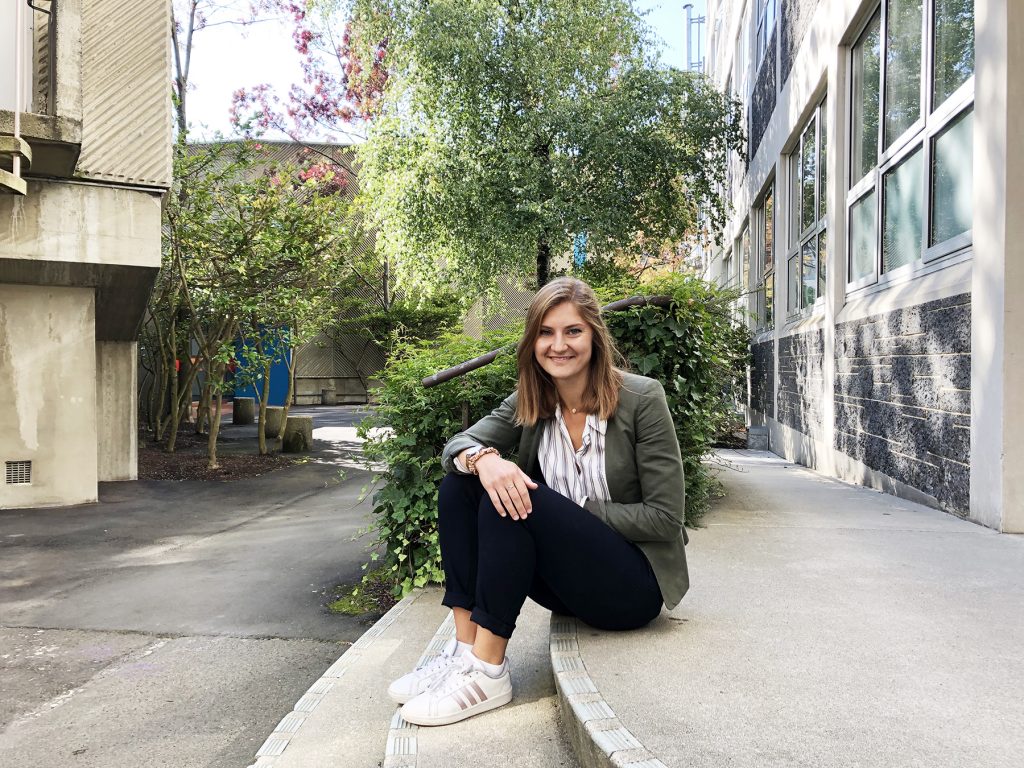
Rachel Ginieis is studying towards a PhD in Food Science and Psychology, at the University of Otago.
People usually describe me as a little bit hyperactive and crazy! The crazy part usually results in building innovative projects and developing new ideas while I often use the hyperactivity part to realize those projects in a dynamic way. But I’m also tempted to describe myself as curious. Understanding processes, reactions, reasons why …since I was a child, I have always asked heaps of questions. I came to Dunedin in 2016 for a 6-month internship studying the effect of sweetness on cognitive functions. That time fuelled my interest and passion for sensory science and neuroscience, mainly due to the trust that Dr Mei Peng (Senior Lecturer, Department of Food Science, University of Otago) had in me. We ended up writing and publishing my first paper on the topic as well.
Dunedin is more than 20,000 km away from Montpellier, my hometown in France, and I first came here with my friend Agathe for the opportunity to discover a new culture and have the kind of life experience which happens only once. Since being here we have seen breath-taking landscapes every single weekend, hitchhiked all over New Zealand, and met amazing people; but we were always back on Monday morning, ready to do more research.
My love for the topic never stopped and I returned to start my PhD, again under supervision of Dr Mei Peng, Professor Elizabeth Franz and Professor Indrawati Oey. My “baby” which we often call our PhD project (although sometimes I think that it would be easier to have an actual baby) is about assessing a Human Sensory Fingerprint, including all five senses, and see if we can link individual sensory perceptions to modifications of the brain’s reward circuitry. This brain pathway evolved to increase organism’s behaviours that improve its chances to survive. However an over-stimulation of this circuitry can alter this pathway and lead to different type of addictions and compulsive behaviours. My research could bring some explanations to the overconsumption and craving for sweet, salty and fatty food around the world. I find it exciting and I am looking forward to another one and a half years full of craziness, hyperactivity and curiosity…. and “envoûtante” research, which means “bewitching” or “delightful”.
Nicky Richardson is an International Marketing Coordinator at the University of Otago. With degrees in music and marketing, both from Otago, she is passionate about education, and the places it can take you.
Giving back – one international student’s remarkable journey
Growing up in an academic family, in Yangon, Myanmar, with an emphatic value placed on education, my parents always wanted to give me an education abroad.
As I had never been away from home and as parents they wanted somewhere their child would be safe and still be offered the quality education they were after, it is not surprising New Zealand was at the top of their list.
With an interest in biomedical sciences from an early age, together with my parents, I made the decision to study at the University of Otago, New Zealand’s first university with excellence in medical and biomedical research and teaching.
I started my affiliation with the University of Otago in 2001, firstly completing a foundation studies course before moving onto studying genetics. I received my Bachelor of Science Degree, with first class honours in Genetics in 2005, after which I worked as a research assistant both at the University of Otago and Massey University in order to have the skills to pursue my PhD in 2010. I was awarded a PhD in Microbiology in 2013.
Immediately after my BSc (Hons) graduation and my PhD graduation, I started my employment at the University of Otago. I am currently leading an international research programme combating tuberculosis (TB) in New Zealand and my home country Myanmar through a prestigious Sir Charles Hercus Research Fellowship awarded to me by the New Zealand Health Research Council.
How did you find the learning/teaching environment at Otago? Do you think it gave you the skills and knowledge to enable you to find employment?
I would say that my experience at Otago gave me a chance to discover myself and my purpose in life. I have always wanted to make a difference and to contribute back to the community. Therefore, I selected the health sector as my way of doing so, particularly TB, which daily claims 5,000 lives mainly from socioeconomically disadvantaged communities.
What was your experience with your lecturers/supervisors like? Were they approachable and helpful?
Lecturers and teaching fellows were so helpful and supportive. Some of them are my longstanding mentors, and I can proudly call them my lifetime friends.
How have you found the ‘culture’ of the students, staff, and people that work at the University of Otago?
The culture of the students and staff at the University is that we courageously keep on tackling big challenges, which is the reflection of the University’s motto “Dare to Be Wise”.
How would you describe the University of Otago to somebody who was thinking of studying as an international student at Otago?
Truly home away from home – when I first arrived here I felt homesickness. But people here at the University and in Dunedin are amicable and welcoming, so Dunedin quickly became my home away from home.
Did Otago met your expectations?
Exceeded.
How does it feel to be an Otago alumni?
I am a proud scarfie and a true University of Otago product (from Foundation Studies to PhD and now an employee of the University).
What is the best memory you have from your time at the University of Otago?
Unforgettable student experience – some of my best memories include my time at Cumberland College, a residential college I lived in first as a student and later as a residential assistant supporting other students. I am now a College Fellow at Cumberland, providing mentor ship to students within and beyond their academic life.
Nicky Richardson is an International Marketing Coordinator at the University of Otago. With degrees in music and marketing, both from Otago, she is passionate about education, and the places it can take you.
An education for the love of fitness and health
Ashim Maharjan was born in Nepal and moved to New Zealand when he was 8 years old. Stemmed from his own personal interest in fitness and health he has completed both undergraduate and Masters degrees at the University of Otago and is currently working on his PhD. This is his story, in his own words, about his educational journey at Otago.
My life has always involved fitness and health – whether it was studying at undergraduate in physical education and neuroscience, or my obsessive love of training at the gym and jujitsu. I have always been fascinated with how people of different builds are attracted to the fitness and health industry, and why some succeed in their goals, and others don’t.
Obesity is a disease affecting a large number of the population, not just in New Zealand, but all across the globe. Food is enticing due to its visual allure and smell, which can act as stimuli that ultimately contribute to the obesity problem. My Masters research confirmed that stimulation of an area of the inner foreman suppressed the sense of smell, and now my PhD research is looking whether a similar suppression could apply to both smell and food senses. Any outcome has the potential for clinical applications to help suppress hunger and appetite and therefore achieve weight-loss and improve overall health.
When I started at Otago, my undergraduate degree in physical education really focused on the body; then I shifted focus to neuroscience and the role of the brain. Jumping disciplines is quite interesting as it requires a change in mind-set, and now I’m researching in a multi-disciplinary way across anatomy and food science which combines it altogether. I was born in Nepal and have lived in NZ since I was 8.
To start your educational journey at Otago, follow the link below.
Nicky Richardson is an International Marketing Coordinator at the University of Otago. With degrees in music and marketing, both from Otago, she is passionate about education, and the places it can take you.
Inspiration for women who want to be the boss.
E-learning company GoSkills’ co-founder Bhavneet Chahal says her experiences at the University of Otago kick-started a career helping others learn about IT and realise their potential.
Bhavneet completed a Bachelor of Applied Science with first-class honours, majoring in molecular biology in 2006. She later gained a Master of Entrepreneurship.
While working for Groupon in Sydney, Bhavneet realised that online courses were a growth area but that they were not always providing the quality content required by professionals looking to expand their skills.
Since being founded in New Zealand in 2013 – with input from Otago Professor Paul Hansen – more than 104,000 users have signed up to access GoSkills’ 50+ online learning courses.
Bhavneet backs up her advice for young women wanting to start their own business with practical assistance; she proudly supports two $2,000 scholarships each year. The title of these awards leaves little room for misinterpretation: they are called the Scholarship for Women Who Want to be the Boss.
 How did Otago help to shape your life and career success?
How did Otago help to shape your life and career success?
I studied Applied Science as an undergraduate and, while I always enjoyed science, I couldn’t see myself pursuing a career as a researcher or scientist.
During the last year of that degree I found a student business competition on campus called Kickstart. I entered the competition with a business idea and I was a winner in the first round and a finalist in the competition’s second round.
This opened up my eyes to a totally different world of business and entrepreneurship. I then completed a Master of Entrepreneurship to learn practical skills to start and grow a business.
This degree was right up my alley, I learned the fundamentals of business and felt prepared to one day start my own company.
 Highlights and interesting memories of your university days?
Highlights and interesting memories of your university days?
Definitely the residential colleges; when I first arrived at Otago I stayed at St Margaret’s College. I later worked as a Residential Assistant (RA) at Cumberland College, which was known at the time as being a bit of a party Hall. It was then that I realised what being an undergraduate at Otago was truly like! I was glad I started off at a relatively tame place and could ease into uni life. Some of my best friends today are people I met at both St Margaret’s and Cumberland!
 Recollections of favourite or standout lecturers?
Recollections of favourite or standout lecturers?
I had two standout lecturers. The first was Richard Higham – he was about 79 when I took his class during the Master of Entrepreneurship. I was inspired by his sharp intellect, boundless energy and superior Excel spreadsheet skills! He was able to bring our class together and teach us how to grow a business in a fun and dynamic environment.
The other standout lecture is Professor Paul Hansen – an economics lecturer and part-time surfer. I was drawn to Paul’s energy and passion for his craft – economics and business. It’s no wonder he’s won student popularity awards and it’s also no coincidence that he’s now my business partner at GoSkills.
 What are your career or personal highlights?
What are your career or personal highlights?
Starting a company from scratch, pulling together people and resources and growing it into a global business. Our team can work from anywhere in the world and we sell to customers the world over. Building a business that pushes the boundaries of being in a global and connected world has been extremely fulfilling.
 What are your future goals?
What are your future goals?
Keep building businesses, help others build and grow businesses, and world peace – naturally!
 What advice do you have for current students or students considering studying at Otago?
What advice do you have for current students or students considering studying at Otago?
Make the most of every opportunity. There are so many facets to university life – try them all. Join random clubs, try sports you might not have ever considered, enjoy the unexpected friendships you will form along the way. It’s only when you try loads of different things that you discover what you truly like and figure out who you are. University is a time to try things in a safe environment and set yourself up for a future that most aligns to who you are and where you want to be.
Many thanks to the team at the University of Otago Alumni & Friends for providing the content for this blog!
Nicky Richardson is an International Marketing Coordinator at the University of Otago. With degrees in music and marketing, both from Otago, she is passionate about education, and the places it can take you.
Education and passion – one Otago student’s fight to save New Zealand’s native wildlife
Imagine……wanting to make a difference…..then coming to the University of Otago and finding an environment that enables you to thrive, despite setbacks, to make that difference.
If you’re looking for inspiration to study at Otago, look no further than Master of Science (MSc) in Genetics student Anna Clark……
“I came to Dunedin from Hurunui, North Canterbury, but I’ve lived all over the show, from the banks of Lake Ellesmere to Cromwell. In high school I was involved in a restoration project up the Nina Valley in the Lewis Pass, trapping predators like possums, rats, stoats and weasels. Over the seven years I realised trapping and poison are a Band-Aid for a long term challenge – if we’re serious about eradication we need to be innovating new tools. My research project for my Masters in Genetics is looking at a genetic pest control method called “gene drive” and how we could use it to control or eradicate invasive mammal species in New Zealand. Despite current pest control systems our wildlife continue to decline. We can’t keep doing what we’ve done in the past, we have to think outside the box.”
“That’s why I’m interested in genetic pest control technology because it’s a different way of approaching our invasive species problem. It’s not something we can use right now, but imagine where we’d be if we’d implemented it 20 years ago! As researchers we get to mentally challenge ourselves to answer these difficult questions and advance our understanding of the world we live in.
I actually sustained a pretty severe brain injury last year when I was hit by a car whilst cycling to uni. This was a big fork in the road and over the course of six months I seriously considered dropping everything and pursuing a career that demands less brain power. But when I look back, what got me through was finding ways to look at the bigger picture and think about how I can best lean on my strengths in order to make a difference!”
AND NEWSFLASH: the amazing Anna Clark has just been named as a Blake DOC Ambassador for 2019/20! Fantastic news and well deserved. Kia mau te wehi Anna!
AND if that’s not enough, for further inspiration from Anna herself, here’s a link to a TedxYouth talk she gave recently.
Many thanks to Anna, Guy Frederick, Communications Advisor (Science) and Craig Borley, Communications Adviser (Health Science) at the University of Otago for providing the content for this blog!
Nicky Richardson is an International Marketing Coordinator at the University of Otago. With degrees in music and marketing, both from Otago, she is passionate about education, and the places it can take you.

